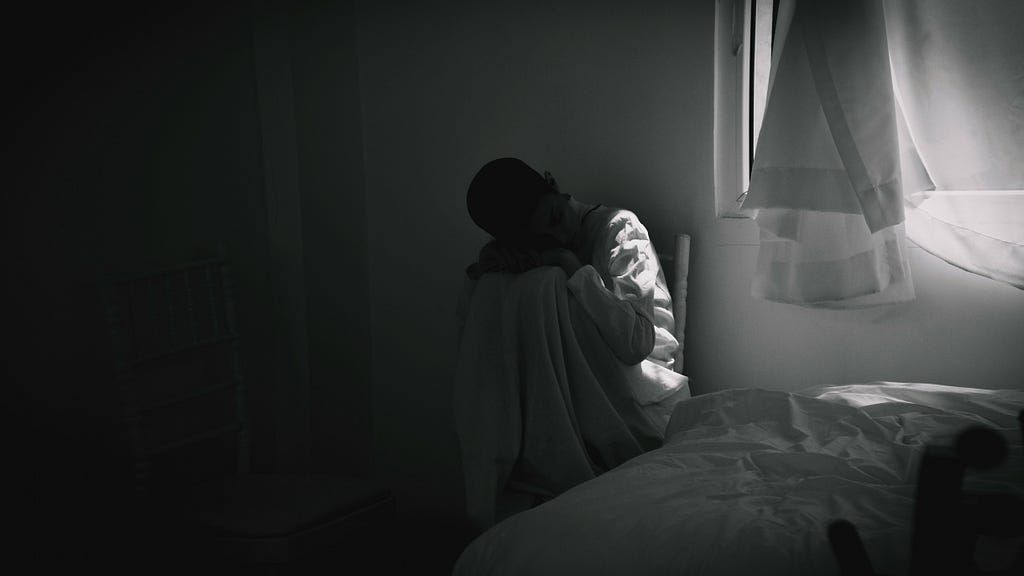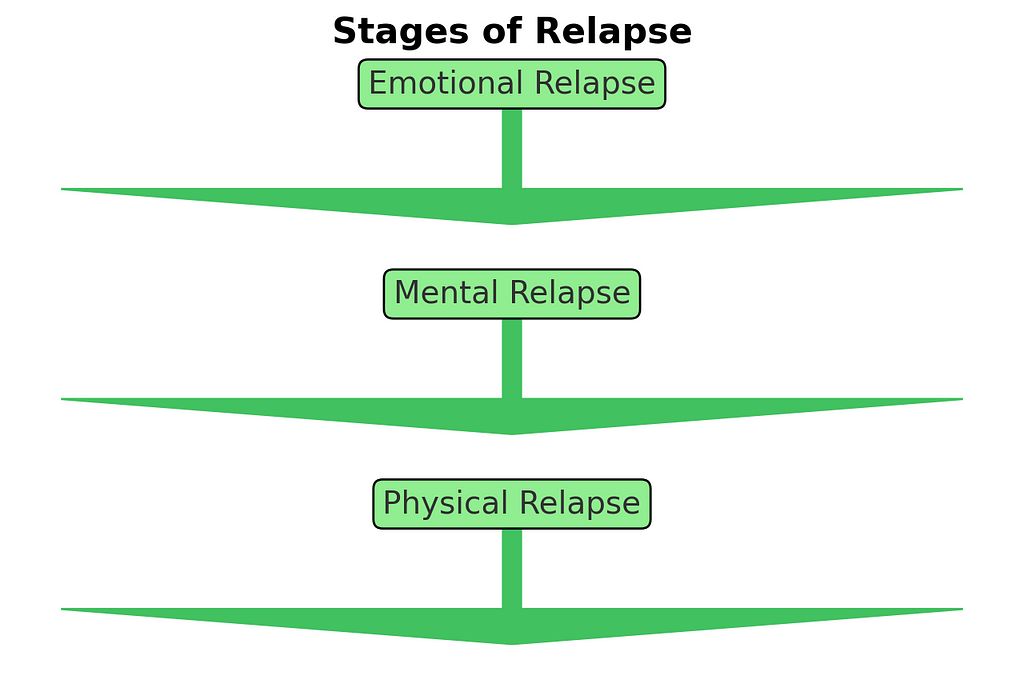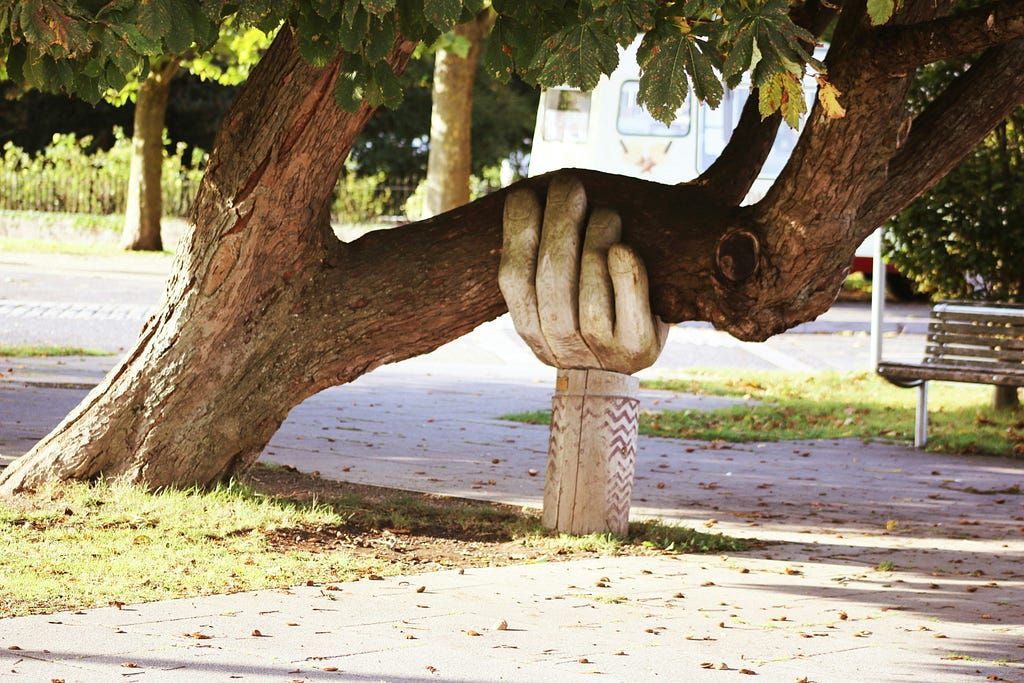What is Relapse and How Can I Prevent It?

Relapse is a bump in the road that many people face during their journey to recovery. It’s when someone returns to substance use after a period of sobriety. However, understanding what relapse is and how to prevent it can turn this challenge into an opportunity for growth and learning.

Photo by Sam Moghadam Khamsehas on
UnsplashUnderstanding Relapse
Relapse isn’t a sudden event but a process that unfolds in stages. It begins subtly with emotional triggers and can progress to mental planning and finally, the physical act of using. Recognizing and addressing these stages early can help prevent a full-blown relapse.

Emotional Relapse:
This stage often goes unnoticed. You might not be consciously thinking about using substances again, but your emotions are setting the groundwork for it. Signs include anxiety, isolation, anger, and mood swings. Maintaining self-care routines like regular sleep, healthy eating, and exercise can help manage these emotional triggers.
Mental Relapse:
Here, an internal battle begins. You start to think about using again. You might find yourself reminiscing about past use, craving substances, or planning how you might relapse. During this phase, it’s crucial to reach out to your support network, attend meetings, and practice mindfulness techniques to stay present and grounded.
Physical Relapse:
This is the stage where you return to substance use. It’s important to remember that this doesn’t mean all your progress is lost. It’s a signal to reassess your strategies and strengthen your commitment to recovery.
Preventing Relapse
Preventing relapse is about building resilience and creating a supportive environment. Here are some friendly and practical tips to help you stay on track.

Build a Support Network:
Surround yourself with people who understand and support your journey. Regularly attending support groups and therapy sessions can provide a safe space to share your struggles and successes. Having a network of understanding friends and family can make a huge difference. If you went through a treatment centre, most offer an alumni program where you can share and connect with your peers.
Develop Healthy Habits:
Routine is a powerful ally in recovery. Engage in activities that promote physical and mental well-being. Exercise, hobbies, and meditation are excellent ways to reduce stress and provide alternatives to cravings. Find activities that you enjoy and that give you a sense of accomplishment and joy.
Identify and Manage Triggers:
Awareness is key. Identify situations, people, or emotions that trigger cravings. Develop a plan to manage these triggers, whether it’s through avoidance, coping strategies, or seeking support when you feel vulnerable. Sometimes, just talking about your triggers can lessen their power over you.
Set Realistic Goals:
Recovery is a marathon, not a sprint. Set achievable goals and celebrate your progress, no matter how small. This helps build confidence and motivation to stay on the path of sobriety. Remember, every step forward, no matter how small, is a victory.
Practice Self-Compassion:
Be kind to yourself. Recovery is hard work, and it’s okay to have setbacks. What’s important is how you respond to them. Treat yourself with the same compassion you would offer a friend in a similar situation.
Stay Connected:
Isolation can be a breeding ground for relapse. Stay connected with your support network and engage in social activities that don’t involve substances. Building a community around your sobriety can provide a sense of belonging and accountability.
Learn from Setbacks:
If relapse occurs, don’t view it as a failure. Instead, see it as an opportunity to learn more about your triggers and how to handle them. Discuss what happened with your therapist or support group and develop new strategies to prevent it from happening again.
Focus on Your Health:
Physical health impacts mental health. Ensure you are eating well, staying hydrated, and getting enough rest. Physical wellness can significantly boost your mood and reduce cravings.
Mindfulness and Meditation
:
Incorporate mindfulness practices into your daily routine. Techniques such as deep breathing, meditation, or yoga can help you stay present and manage stress. Mindfulness helps you become more aware of your thoughts and feelings, giving you the power to respond rather than react.
Relapse is a common part of the recovery journey, but it doesn’t have to derail your progress. By understanding the stages of relapse and implementing strategies to prevent it, you can navigate setbacks with resilience and continue toward a healthier, substance-free life. Remember, every step you take towards recovery, no matter how small, is a step in the right direction. Embrace the journey, lean on your support network, and always be kind to yourself, no matter how hard you are on yourself. You’re here to learn and grow, no one acheives perfection but we do make progress. You’ve got this.

Together We Can Alcohol & Drug Recovery & Education Society offers information, education, and licensed addiction treatment services in the lower mainland of British Columbia. Services include spousal, family and community supports, workplace education, detoxification, outpatient counselling, opioid dependency programs, and residential treatment services. Together We Can has clinical counsellors and therapists with specific training in addiction issues, and is licensed by Vancouver Coastal Health.
What is Relapse and How Can I Prevent It? was originally published in Together We Can on Medium, where people are continuing the conversation by highlighting and responding to this story.



